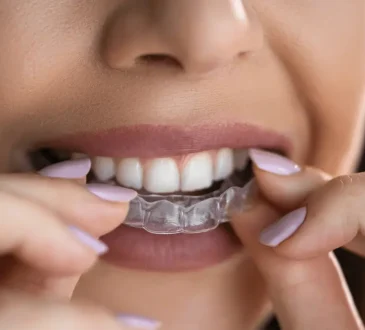
Introduction: Why a Smile Reflects Total Health
A smile is more than a reflection in the mirror—it signals confidence, vitality, and connection. Yet aging can quietly affect the mouth, ears, and hormones in ways that reduce self-esteem and energy. Teeth wear and discolor, hormone levels shift, and hearing clarity may fade. Addressing these changes together helps adults maintain strong health and a positive self-image, rather than feeling limited by age.
The Emotional Impact of a Healthy Smile
Social psychologists have shown that smiling freely influences mood and relationships. People unhappy with their teeth may avoid photos, speak less, or hold back laughter — habits that can slowly lead to loneliness or self-doubt. A confident smile can reverse that pattern by encouraging social interaction, improving first impressions, and supporting emotional resilience. In fact, licensed psychologists and therapists at https://alliancepsychologyut.com/ highlight how self-esteem and social confidence play a powerful role in psychological well-being. When people feel comfortable expressing joy, they’re more likely to build meaningful connections, maintain a positive self-image, and experience greater overall life satisfaction.
Veneers: How They Work and Why They Matter
Dental veneers are thin porcelain or composite layers applied to the front of teeth. They correct staining, uneven edges, small gaps, and chips while preserving most of the natural tooth. Compared to crowns, they are less invasive but long-lasting.
Benefits include:
- Creating uniform, youthful-looking teeth.
- Resists stains better than natural enamel.
- Improving bite comfort for clearer speech and easier smiling.
- Boosting self-confidence for work and social life.
People who have long hidden their teeth often describe veneers as life-changing, especially when paired with good oral hygiene and regular dental visits.
Oral Health and Hormonal Changes
Hormones influence gums, bone, and tissue healing. Midlife drops in estrogen or testosterone can lead to gum sensitivity, increased inflammation, and slower recovery after dental work. Low testosterone is also linked to reduced bone density, including the jaw, which helps anchor teeth and support restorations.
Safe, medically guided TRT therapy or other hormone replacement therapy may stabilize these changes. Balanced hormones improve healing response, maintain bone support for veneers, and reduce the risk of gum disease. While hormone therapy is not a cosmetic dental treatment, it supports the biological foundation needed for long-term oral health.
The Role of Metabolism and Weight in Oral Wellness
Aging often brings slower metabolism and a higher risk of diabetes or cardiovascular disease. These conditions can affect blood flow and immune response in the gums. Chronic inflammation also threatens the jawbone that supports teeth and veneers. Taking steps to maintain a healthy weight and balanced hormones reduces these risks, improving oral stability and longevity of cosmetic work.
Hearing: A Silent Partner in Confidence
Confidence is not just visual—it’s auditory. Hearing loss can lead to embarrassment, withdrawal from conversations, and difficulty participating in group settings. When someone invests in their smile, being able to fully engage socially is equally important. Hearing strain also raises cortisol, the stress hormone, which may worsen fatigue and reduce overall wellness.
Why Comprehensive Hearing Testing Matters
Age-related hearing decline is often subtle. Regular audiology exams can detect changes long before they interfere with daily life. These evaluations measure sound perception, speech understanding, and balance function. Practices such as Apex Audiology use modern diagnostics to distinguish between normal aging and treatable conditions. Early detection means easier interventions and less social fatigue.
Modern Hearing Aids: Clear Sound, Lower Stress
When hearing support is needed, today’s hearing aids — like those offered by Apex Audiology — go beyond basic amplification. Features may include:
- Directional microphones that focus on voices in noisy spaces.
- Advanced feedback control for comfort.
- Bluetooth streaming for calls and music.
By reducing listening effort, these devices lower stress hormone levels, improve sleep, and help users enjoy conversations without strain. For someone proud of a new smile, hearing clearly can be the missing piece that restores full social confidence.
How Hormones Affect Hearing Health
Hormones don’t just impact teeth—they affect the ears, too. Testosterone and estrogen help maintain a healthy blood supply and fluid balance in the cochlea. Drops in these hormones may increase susceptibility to age-related hearing loss or tinnitus. Metabolic hormones such as thyroid and cortisol also play a role; imbalances can lead to dizziness or sound sensitivity. Supporting hormone health can indirectly protect hearing by preserving circulation and nerve function.
Lifestyle Foundations That Support Oral, Hormone, and Hearing Health
- Strength training: Preserves muscle and jawbone density, improving long-term veneer support and overall resilience.
- Nutritious diet: Adequate protein, calcium, vitamin D, and antioxidants protect teeth, support hormone production, and nourish the auditory system.
- Consistent sleep: Helps regulate hormones and aids tissue repair after dental or hearing interventions.
- Noise protection: Prevents further hearing damage during loud activities.
- Regular screenings: Early detection of gum disease, hearing decline, or hormonal imbalance prevents complex treatment later.
Simple habits create the best foundation for any advanced medical or dental care.
Coordinated Care: Why Integration Improves Results
Older adults get the best outcomes when providers communicate. Dentists planning veneers can consider bone density and healing capacity if they know a patient’s hormonal status. Hormone specialists can advise on timing and safety for therapies that influence bone or inflammation. Audiologists can adjust hearing devices if jaw or bite changes affect comfort. Even when care occurs in separate offices, sharing updates avoids conflicting recommendations and maximizes success.
Mental and Cognitive Benefits of Whole-Body Care
A confident smile and clear hearing both encourage social engagement, which protects mental health and slows cognitive decline. Meanwhile, balanced hormones improve sleep and mood, helping people feel motivated to stay active and connected. These factors reinforce one another: smiling invites conversation, hearing well makes participation easy, and good sleep and energy maintain resilience. Together, they create a cycle of well-being rather than isolation.
Planning Ahead for Healthy Aging
Midlife is the ideal time to act. Adults should:
- Consider hormone testing if energy, muscle, or mood change.
- Schedule regular audiology exams to detect early hearing loss.
- Discuss long-term smile goals and options such as veneers with a trusted dentist before wear or damage worsens.
Addressing these needs proactively prevents crisis care later and helps maintain independence and self-esteem.
Conclusion: Whole-Body Confidence for a Lifetime
Aging does not have to mean losing vitality or self-assurance. Cosmetic dentistry, especially veneers, can restore a youthful smile and renew confidence. Safe, well-monitored TRT therapy or other hormone support protects bone health and energy, while expert audiology and advanced hearing aids keep communication easy and social life fulfilling. By caring for teeth, hormones, and hearing together, adults can age with strength, clarity, and confidence—living fully and smiling freely at every stage of life.




